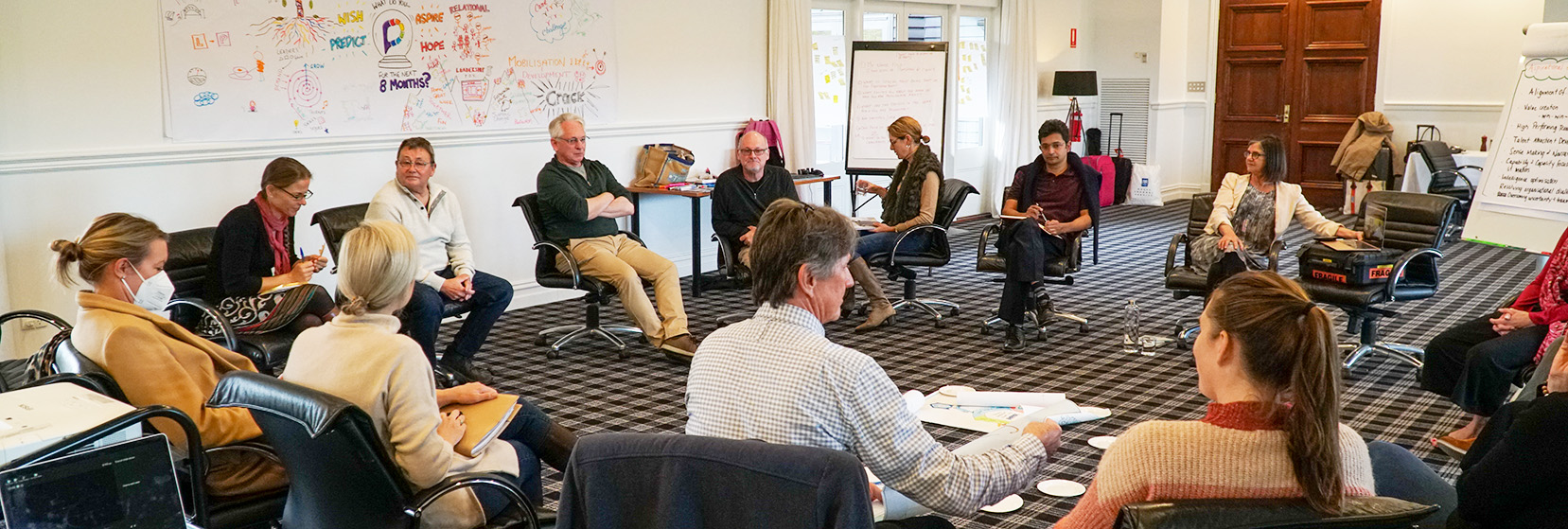
09 May Are we doing enough to prepare leaders beyond their own corporate doors to the world of ESG?
In today’s world, does the privilege of being a leader come with the responsibility to go beyond just delivering on an organisation’s goals and profit to using knowledge and skills to play a more concerted role in addressing the growing concerns around environmental, social, and governance (ESG) issues?
As leadership development specialists what is our role in preparing leaders to work beyond the doors of their organizations to contribute towards sustaining a healthy planet and being good neighbours?
These questions emerged for me recently after completing a recent program with one of my colleagues Dr. Ying Ying Liu as we reflected on a recent simulation we ran for senior leaders.
It was a dynamic and powerful experience taking the leaders out of their normal role and industry to pressure test thinking about strategy, innovation and change leadership.
Basking in the glow of a great experience and feedback from the group my colleague asked me about some of the decision-making variables the sim had possibly not taken into account.
- “What do these decisions mean for overall water use?” (a proposed joint venture for businesses in another country to allow manufacturing to be delivered in a more efficient way.)
- “How are they preserving the planet and helping the communities around them to get better in some way?”
It started a conversation with someone well versed in this area. Ying Ying is a passionate eco-warrior and founded her own amazing charity based out of HK to teach children to develop and emotional connection toward endangered animals so the future generation cares more about stopping illegally poached and trafficked wildlife than the adults of today seem to.
Today as we know there is a lot of emphasis by organisations on accelerating talent pools and building leaders through various levels on capabilities that are seen as emerging gaps. This is usually defined as the bridge between the strategy and ambition of the organisation and the current level of capacity or agility of people to deliver on this. Especially given the level of change and disruption taking place across industry.
But is there enough work being done to prepare these leaders with the tools and knowledge to make informed decisions that benefit both the organisation and society as a whole.?
It requires leaders at all levels to incorporate ESG considerations into their decision-making processes, from supply chain management to product design and marketing
Of course, ESG is increasingly becoming legislated into corporate life in many organisations and placing increased requirements on reporting on such things as emission generated and so on. Whilst this makes the conversation about sustainable practices and being a good corporate citizen more likely, there are still systemic inadequacies. A McKinsey Quarterly Report in August 2022 Does ESG matter and why? shared some of the inherent dilemmas in making progress in this domain including;
- It can be viewed as a distraction to the core reason a business exists or what it is supposed to do. So, for some companies ESG presents as a sideshow or perhaps activities are taken on only when they are viewed as good for the brand (mostly by the department(s) that have some core responsibility for brand).
- It is intrinsically difficult to get into real strategy within companies that must satisfy a complex array of stakeholders with differing expectations.
- ESG is not yet measurable to any practical degree and there is still a lack of abundant evidence linking financial performance to ESG initiatives.
The article does go on to say while names will come and go (ESG came after CSR – Corporate Social Responsibility) the work and need of organisations to earn their social license is not likely to diminish. Indeed, tomorrow’s talent is likely to make choices increasingly based on how organisations show up to these global challenges in ways that extend beyond the typical self-interest of organisations.
Our world today is being shaped by climate change and global conflict and I would argue a lack of leadership capability at the highest levels of power. Perhaps if we can better develop “future wise” leaders that can drive profit and economic performance as well as integrating ESG obligations seriously into everyday decisions and strategic imperatives I think we can be more impactful in playing our part…!
Are we doing enough? What do you think?
Written by Paul Sedgwick
Director,
PiqueGlobal

